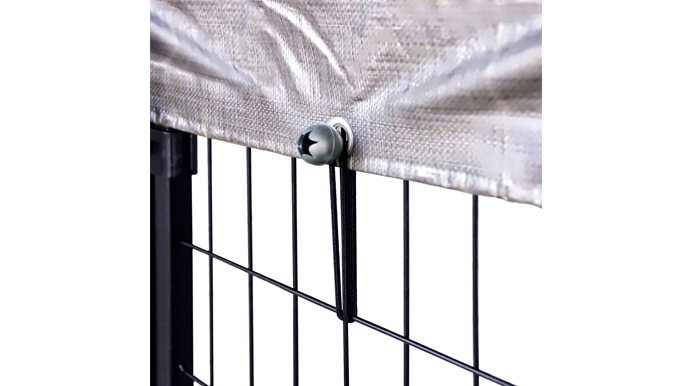Affordable Solutions for Your Field Fencing Needs and Supplies
Aug . 21, 2024 02:17
Field Fencing Supplies Essentials for Effective and Durable Enclosures
Fencing is a crucial aspect of land management, be it for agricultural purposes, livestock protection, or defining property boundaries. In the world of field fencing, selecting the right supplies is paramount to ensuring that the fence serves its intended purpose effectively and lasts for years. This article explores the essential supplies that comprise field fencing and their significance.
Types of Fencing Materials
1. Wire Fencing One of the most common materials used in field fencing is wire. Options include barbed wire, welded wire, and electric fencing. Barbed wire is effective for deterring livestock from escaping and intruders from entering. Welded wire offers a higher degree of security and is suitable for more vulnerable species. Electric fencing, often used alongside other types, can effectively contain and control animals while also serving as a deterrent against predators.
2. Wood Fencing Wooden fences provide an aesthetic appeal and are often preferred in residential areas. However, they require regular maintenance to prevent rot and damage from pests. Treated lumber can enhance durability, making wood fencing a practical option for some agricultural applications.
3. Vinyl Fencing For those looking for longevity with minimal maintenance, vinyl fencing is an excellent choice. It resists weather, UV rays, and insect damage, making it a popular choice for long-term field applications.
4. Composite Fencing This material is a blend of wood and plastic, offering the best of both worlds. Composite fencing combines the natural aesthetics of wood with the durability of plastic, resulting in a low-maintenance, environmentally friendly option.
Supporting Components
Regardless of the primary fencing material used, several supporting components are crucial for building a sturdy and reliable fence
1. Fence Posts Fence posts are the backbone of any fencing structure. They must be strong enough to support the weight of the fence and withstand external forces such as wind or animal pressure. Common materials for posts include wood, metal, and vinyl, each possessing unique advantages in terms of strength and longevity.
field fencing supplies

2. Gates A functional gate is essential for accessibility. Gates come in various designs and materials, and it's crucial to match them with the fence type. Ensuring that gates are properly installed is vital to maintain the integrity of the fence line.
3. Fencing Tools Installing a fence requires specific tools, such as a post hole digger, wire cutters, and tensioning tools. Having the right equipment not only makes the installation process more efficient but also contributes to the overall quality of the fence.
4. Fasteners and Accessories Items such as staples, clips, and insulators play a significant role in the installation and stability of the fence. Choosing high-quality fasteners ensures that the components work together seamlessly and that the fence remains secure over time.
Considerations for Choosing Field Fencing Supplies
When selecting fencing supplies, several factors should be considered
1. Purpose Understand the primary function of the fence. Is it for containment, security, or aesthetic appeal? The purpose dictates the materials and styles to consider.
2. Terrain The type of land and its characteristics will influence the choice of fencing materials. For instance, hilly or uneven terrain may require specific types of posts or fencing designs.
3. Maintenance Consider the long-term maintenance required for each material. Some options necessitate regular upkeep, while others are designed for durability with minimal intervention.
4. Budget Finally, cost is always a consideration. Weighing the initial investment against the long-term benefits and maintenance costs will help make an informed decision.
In conclusion, selecting the right field fencing supplies is essential for creating effective and durable enclosures. By carefully considering the materials and components mentioned above, landowners can ensure the longevity and functionality of their fencing systems, ultimately protecting their investments and enhancing their property.




















